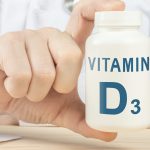Hypertension
Chlorthalidone Monotherapy Has Higher Failure Rates Than Amlodipine Monotherapy
A post-hoc analysis published in the ‘Journal of Clinical Hypertension’ found that chlorthalidone failed as monotherapy when compared to amlodipine monotherapy for treatment of hypertension through systolic blood pressure intervention. The study analyzed data of 496 participants to evaluate chlorthalidone monotherapy and amlodipine monotherapy in terms of systolic blood pressure responses, adverse events and monotherapy failure rates.
The key findings were as follows:
- Chlorthalidone was associated with a higher monotherapy failure rate than amlodipine in the standard treatment group.
- No significant differences in adverse events between both chlorthalidone and amlodipine monotherapies.
- More participants on chlorthalidone monotherapy failed despite having systolic blood pressure (SPB) below the 140 mmHg cut off.
- Higher reduction of SBP with amlodipine monotherapy at the third visit.
In conclusion, chlorthalidone is more likely to fail as monotherapy than amlodipine. Optimizing monotherapy drug selection would help in population level control of hypertension.
Vakil D, Zinonos S, Kostis J et al. Monotherapy treatment with chlorthalidone or amlodipine in the systolic blood pressure intervention trial (SPRINT). The Journal of Clinical Hypertension. (2021);23(7):1335-1343.

Lifestyle Interventions Reduce Need for Guideline-Directed Antihypertensive Medication
Read More

Suppression of Excessive Seasonal Blood Pressure Changes Contributes to Prevention of Cardiovascular Disease
Read More

Acute Moderate-Intensity Exercise can Reduce Resting Blood Pressure in Young Hypertensive Men
Read More

What are the Factors Associated with Hypertension Control Among Treated Middle-Aged Adults?
Read More

Estimating the Time Needed to Potentially Derive Clinical Benefit from Intensive BP Treatment in Patients 60 Years and Older
Read More

Does Beverage Intake During Childhood Determine Risk of Hypertension and Hyperlipidemia During Adulthood?
Read More

Understanding the Burden of Undiagnosed Hypertension and its Associated Factors Among the Adult Population
Read More

Is Hypertension Associated with Lower Antibody Titres and Breakthrough Infection Following COVID-19 Vaccination?
Read More

The Prevalence and Levels of Awareness of Hypertension Among Young Adults
Read More

Is COVID-19-Related Anxiety Associated With Greater Risk of CVD Events?
Read More

Indian Clinicians’ Perspectives on Hypertension in Young Adults
Read More

Finding the Link Between Food Intake Time and Long-Term Survival Among Patients with Diabetes
Read More

Is a FDC of Metoprolol, Telmisartan & Chlorthalidone Efficacious & Safe in the Treatment of Essential HTN?
Read More

Do Hypertension and Hyperlipidemia Synergistically Increase the Risk of Ischemic Stroke?
Read More
The REAL YOUNG Hypertension Study
Read More

Can Fish Oil Supplements Help Reduce the Risk of Cardiovascular Events?
Read More

Prevalence of NSAID Use in Patients with Hypertensive Crisis (HTN-C)
Read More

Does Aspirin Use Increase The Risk Of Heart Failure?
Read More

Can HIIT Workouts Improve Arterial Stiffness?
Read More

Sacubitril–Valsartan Useful In Treating Apparent Resistant Hypertension
Read More

Intensive Blood-Pressure Control in Older Patients Lowers Cardiovascular Events
Read More

Body-Weight Resistance Exercise Can Reduce BP In Middle-Aged Adults With Hypertension
Read More

Aerobic and Resistance Exercises can Lower Blood Pressure in Older Hypertensive Women
Read More

Improved Sleep efficiency Found to Reduce Blood Pressure
Read More

Vitamin D3 Supplementation in Hypertensive Patients Does Not Lower Systemic Inflammation Markers
Read More
